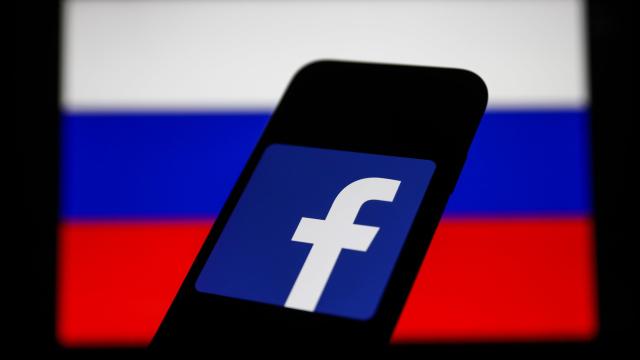Facebook owner Meta has officially become “extremist organisation” in the Russian government’s eyes after a judge upheld a lawsuit by state prosecutors.
The Russian government had reclassified Meta following a revision of the company’s policies on political speech in the wake of the invasion of Ukraine. Meta’s failed attempt at an appeal means the company will keep similar legal company as militant groups like the Taliban and the Islamic State (ISIS), which share the undesirable label. Monday’s ruling also means Meta has become the first foreign technology company to be targeted by Russia’s extremism law.
Russian state prosecutors had lashed out at the company after it altered its policies to allow users in Ukraine and other Eastern European countries to make violent threats against Russian troops and military officials, including Vladimir Putin. The company slightly walked that back later, with executives telling employees that the company’s policy does not actually permit calls to assassinate a head of state. At the time, Meta’s President of Global Affairs, Nick Clegg, said the company had an interest in “protecting people’s rights to speech as an expression of self-defence in relation to a military invasion.” Russia sees things differently.
Aside from joining Putin’s ever-expanding shit list, it’s unclear what new implications the designation will have for Meta. Russia started blocking access to Facebook in late February and last week moved to block Instagram, too. Local engineers have even started developing their own Instagram clone. Under the new designation, Russians attempting to buy ads from Facebook or Instagram or trade Meta stock could potentially be seen as financing a terrorist organisation, according to The New York Times. As for Russian citizens still trying to use the apps, the court claimed the ruling would not lead to the prosecution of individuals for merely accessing the apps.
That might sound reassuring, but it’s also worth keeping in mind Russia just passed a new law ostensibly targeting “fake news” that, in some cases, can lead to 15 years prison sentences for the spread of false information about the military. There’s also still apparently plenty of appetite domestically for banned content. A recent report from Top 10 VPN claimed that demand for VPNs in Russia increased nearly 2,700% since the invasion began.
Meta didn’t immediately respond to Gizmodo’s request for comment.
Monday’s ruling notably somehow won’t apply to Meta-owned WhatsApp, which has so far managed to steer clear of the types of content bans directed toward the rest of the Meta family of apps. The court opted to exclude WhatsApp, which is primarily used as a messaging service, “due to its lack of functionality for the public dissemination of information,” Reuters notes. The fact that WhatsApp reportedly has around 67 million Russian users may have also played a role in the court’s decision. Around half of Russian internet users were on Instagram, according to eMarketer data viewed by The Washington Post. A far smaller share (just around 7.5 million) use Facebook.
Though Russia’s list of extremist groups shares some similarities with other counties’ list of terrorists and other undesirables, it’s come under fire in recent years for allegedly expanding to include domestic opposition groups. Last year, according to Amnesty International, a Russian court applied the designation to the organisation founded by Russian opposition leader Alexei Navalny, who was poisoned in a nerve agent attack in 2020 and is currently serving a three and half year sentence in Russian prison. Russia has also extended the extremist designation to Jehovah’s Witnesses.
The court’s most recent ruling adds to the uncertainties around foreign tech firms still operating in Russia. All eyes will now turn to Alphabet-owned Youtube, which over the weekend received a warning from the country’s internet censor for allegedly “spreading threats against citizens of the Russian Federation.” Not mincing words, the censors described Youtube’s actions as being of a “terrorist nature.”
